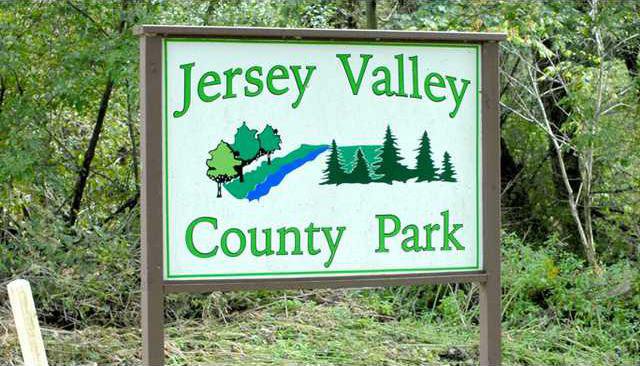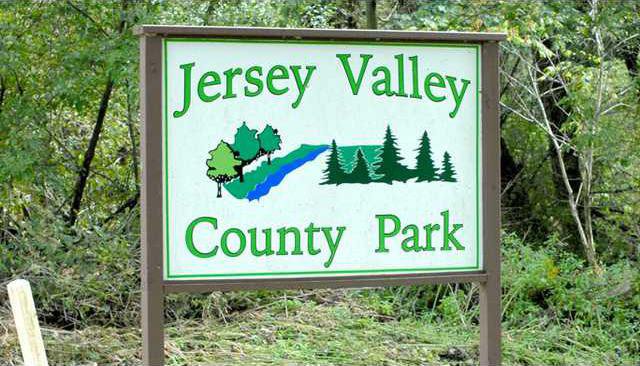VIROQUA - The Vernon County Land Conservation Committee (LCC) discussed a variety of topics at their Thursday, March 7 meeting in Viroqua. The topics included Southwest Badger RC&D, phosphorous credits in Vernon County, upcoming meetings of County Deer Advisory Committees, the breached flood control dams, and potential issues with manure lagoons, spring melt and rain events.
SW Badger RC&D
Vernon County USDA NRCS District Conservationist Sam Skemp reported to the LCC that due to financial issues, Southwest Badger RC&D would cease operations in two weeks.
“Two employees covered under the NRCS agreement have been picked up by the Golden Sands Badger RC&D, but four other employees will be out of work,” Skemp explained. “John Zinn, who brings 30 years of dairy farming and grazing experience, will continue to work directly for the Vernon County NRCS.”
Phosphorous credits
Lonnie Muller of the Episcope newspaper in LaFarge spoke in the public input portion of the agenda. Muller expressed dismay that Vernon County was not participating in the DNR’s phosphorous trading program, and was instead assigning credits to Monroe County’s program.
“The phosphorous program is a new program, and we have had a difficult time interesting communities in Vernon County in participation,” Wojahn explained. “To participate in the program, like Monroe County does led by the City of Sparta, would require additional staff in our department, and we would need more communities to get on board to justify the additional expense.”
Muller cited recently released data that shows the City of Viroqua alone was assigning a credit of $8,000 per month to the Monroe County program.
“I haven’t seen the latest data yet, but past data did not show that kind of dollar amount,” Wojahn said. “We will certainly check into it, and give it another review.”
CDAC meetings
New DNR Wildlife Biologist for Vernon and Crawford counties, Dan Gotz, was present to continue the discussion from the last LCC meeting about the county deer population and the spread of CWD.
Gotz talked to committee members about the history of transitioning management of county deer herds and hunting seasons away from the DNR to County Deer Advisory Committees (CDAC) that began in 2014.
Gotz also explained to the group that the transition to CDAC management also coincided with the legislature’s elimination of the ‘Earn-a-Buck’ strategy for reduction of deer populations and control of the spread of CWD.
“With all the changes in the laws, no backtags, online registration, and the increase in CWD, it’s taken all the excitement of the deer hunt away for me,” said LCC member Supervisor Frank Easterday. “I don’t even know how to register a deer anymore, and I’m probably just gonna hang it up.”
Upcoming meetings of the CDACs in both Vernon and Crawford counties will consider the information from the 2018 season in setting the structure and goals for the 2019 deer-hunting season.
The Crawford County CDAC will meet on Tuesday, March 12, and Tuesday, April 16, at 6:30 p.m., at the Prairie du Chien Public Library.
The Vernon County CDAC will meet Monday, March 11, and Monday, April 15, at 6 p.m., at the Kickapoo Valley Reserve Visitor Center.
Flood control dams
Vernon County Conservationist Ben Wojahn reported to the LCC that his department expects to have more information for the committee about the future of the county’s flood control dams at their April meeting.
“Monroe County has been holding citizen meetings, and the information they are sharing is substantially the same as for Vernon County,” Wojahn said. “We are waiting at this point for more information from the Army Corps of Engineers, or more likely at this point, USDA NRCS.”
Vernon County Board Chairman Dennis Brault requested that Wojahn update the County Board of Supervisors at their April meeting.
“I’m getting lots of questions,” Brault said.
Wojahn reported that he had heard from Wisconsin State Senator Jennifer Shilling’s office that Governor Tony Evers has included $4 million dollars for dams in his budget.
“Historically Repressentative Lee Nerison had tried to get a 0.25 percent sales tax passed in the county to help fund maintenance and repairs for the dams,” Wojahn explained. “But, unfortunately, that did not move forward.”
Wojahn said his department is staying engaged with state and federal officials, but that NRCS has not yet committed to the watershed study in the West Fork 0f Kickapoo River.
“NRCS has made it clear that they are not on board to help us with any engineering expenses related to the future of the dams,” Wojahn said. “This relates to the county’s past stance of severing ties with them as relates to Jersey Valley, and Monroe County is in a similar situation.”
Manure and spring melt
Wojahn brought the potential issue of the perfect storm of a depressed farm and dairy economy, an extraordinarily wet fall and winter, and the upcoming spring melt as pertains to manure storage facilities to the attention of the committee.
“Like other counties, we likely have producers that are tapped out financially and can’t afford to pay for manure pumping,” Wojahn explained. “If we get a melt and rainfall, I fear we could see manure storage facilities overtopping.”
Wojahn had requested authorization for an emergency pumping fund of $2,500, to be released with explicit permission by the Chair and Vice Chair of the Committee.
After intensive deliberation, the committee decided that they could not approve the funds because “if we did it for one, then we’d have to be prepared to do it for everyone.”
Vernon County Board Chairman Dennis Brault said that the issue is more properly the province of the Emergency Management Committee, and that he would take it up with the Executive Committee.
LCC members encouraged Wojahn to reach out to other county conservationists to understand what other counties are doing about this potential hazard.
When reached on Monday, March 11, Crawford County Conservationist David Troester responded to a question from the Independent Scout about whether any similar issues were on his department’s radar.
“Spills are always a concern of our department, but we haven’t had anything specific come to our attention as of yet,” Troester said. “In other years, I’ve seen the DNR send out an alert when conditions shape up like we’re looking at this week, and I wouldn’t be surprised to see something like that coming from them.”
Troester mentioned that one option that can be employed is for a producer to arrange with another producer who may have some space in their storage facility to accept some manure on a temporary basis.




